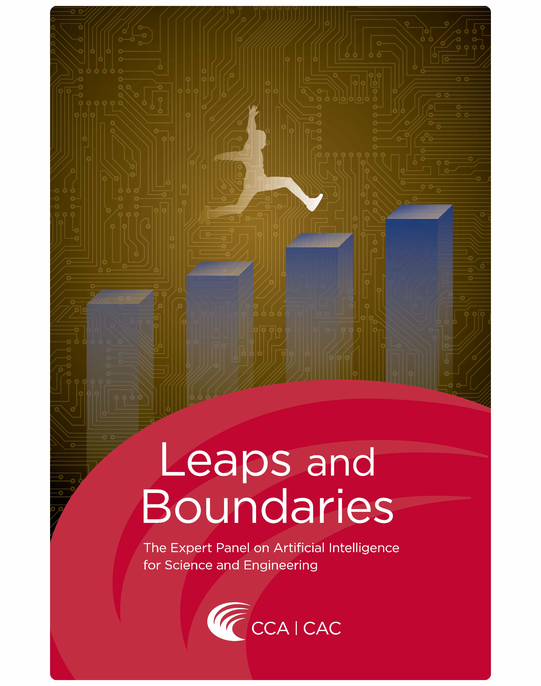Reviewed by Alex SmithMay 11 2022
According to a recent expert panel assessment from the Council of Canadian Academies (CCA), artificial intelligence (AI) is poised to alter how science and engineering are performed and supported in Canada, presenting huge benefits and hazards.
 Leaps and Boundaries. The Expert Panel on Artificial Intelligence for Science and Engineering. May 2022. Image Credit: Council of Canadian Academies.
Leaps and Boundaries. The Expert Panel on Artificial Intelligence for Science and Engineering. May 2022. Image Credit: Council of Canadian Academies.
AI has the ability to drive innovation and advance scientific knowledge beyond human capabilities, but it also has the capacity to exacerbate disparities, perpetuate human prejudices, and even create new ones.
The cross-cutting nature of AI means that no field will remain untouched by this technology. To maximize its benefits, it will be critical that the social and ethical implications of AI are addressed at the earliest stages of development, through to application, and with greater collaboration among researchers across disciplines and sectors.
Teresa Scassa, SJD, Council of Canadian Academies
Canada could potentially risk losing its AI competitive advantage unless it takes bold moves to expand beyond its current capabilities. To date, AI development was mainly focused on research and talent, but there is a pressing need to better integrate knowledge and abilities across many disciplines to develop and apply the technology responsibly in a broader sense.
AI is already utilized in science and engineering for a variety of activities, including data analysis and interpretation. AI is expected to produce unique scientific theories and investigations, as well as new engineering design procedures in the near future, with minimum human input.
This rapid technological advancement has spawned a slew of legal and regulatory challenges, including data governance, intellectual property, and the control of acceptable levels of societal risk.
AI can lead to significant advances in science and engineering, but not without recognizing potential pitfalls. Realizing the promise and potential benefits of AI will require addressing possible biases, from the people who build it, the institutions and governments whose policies are intended to regulate it, and the organizations that use it.
Eric M. Meslin, PhD, FRSC, FCAHS, President and CEO, Council of Canadian Academies
The CCA was invited by the National Research Council of Canada to look into the legal, regulatory, ethical, social, and policy issues that come with using AI to design and discover scientific and engineering research.
Leaps and Boundaries outlines the decision-makers who will decide on addressing the challenges and on the number of industries and sectors that might integrate AI into their activities.